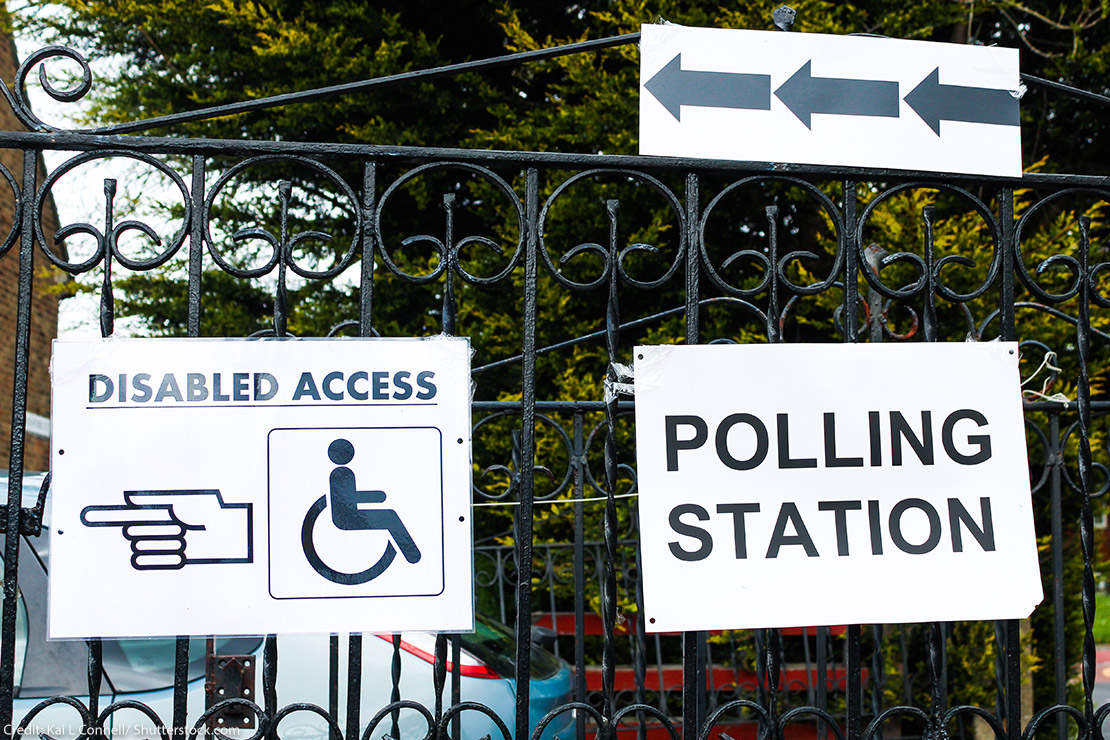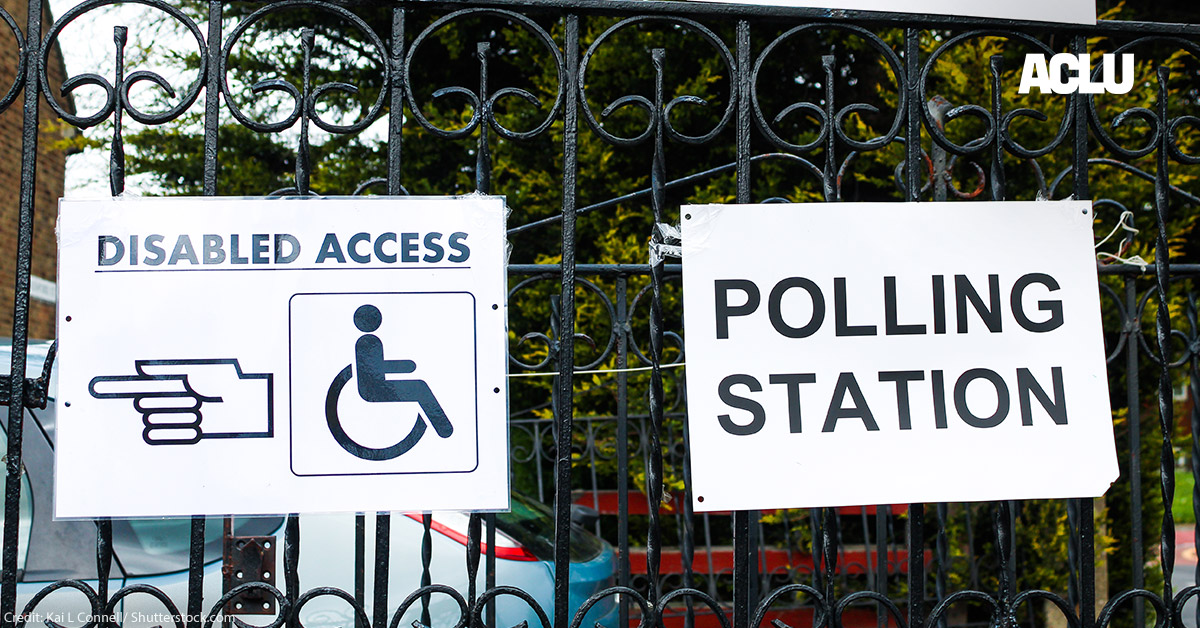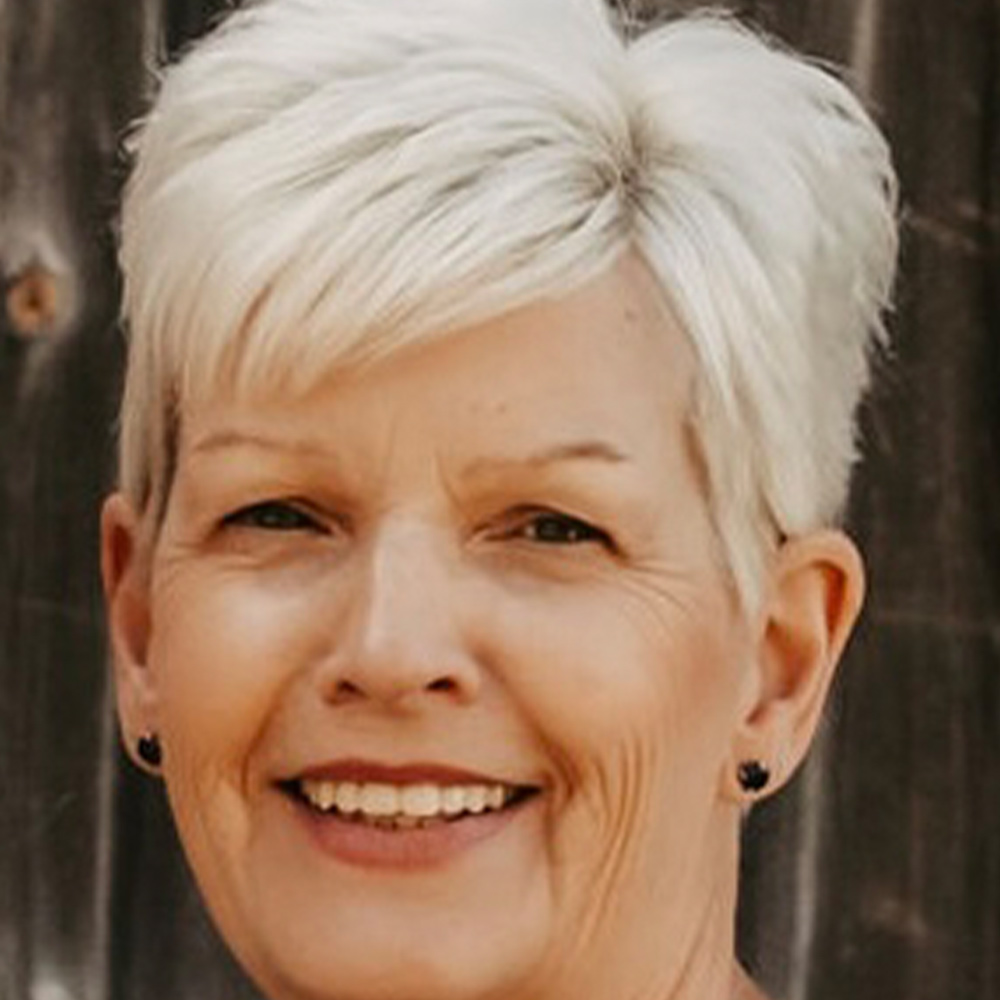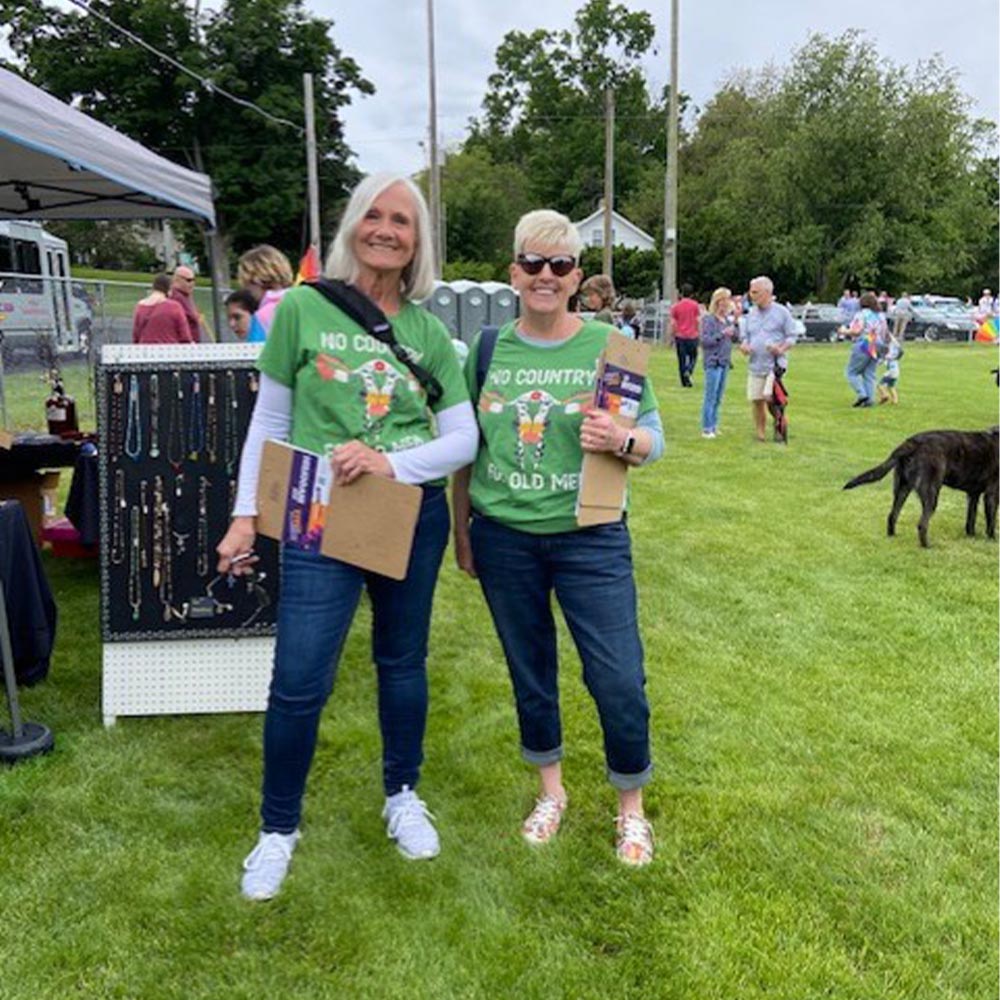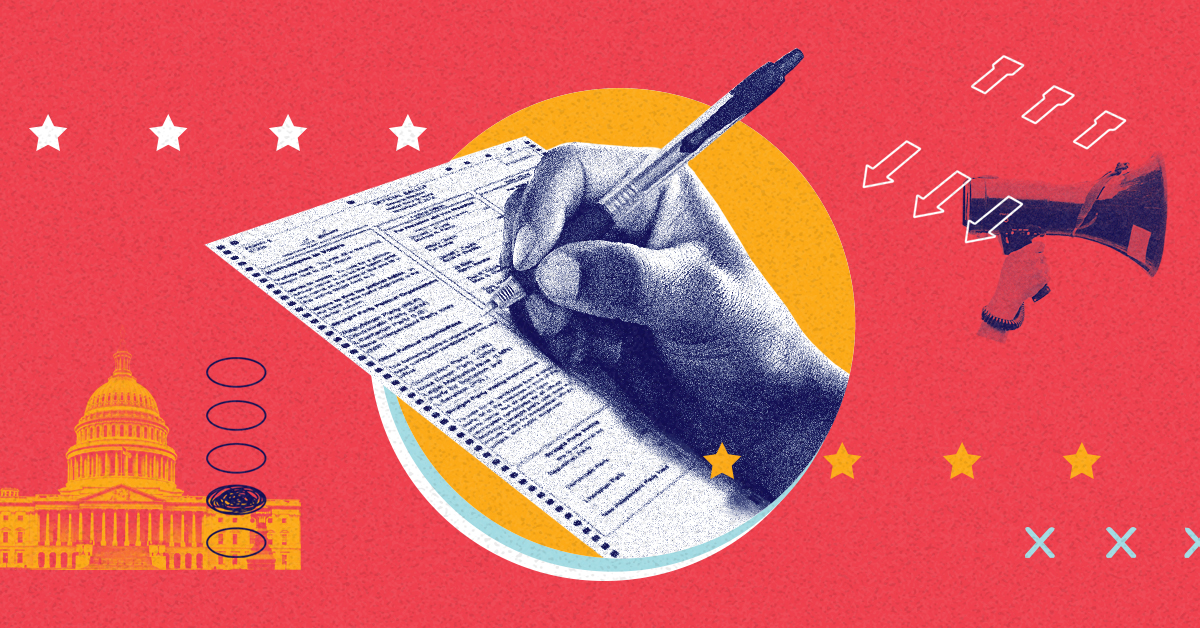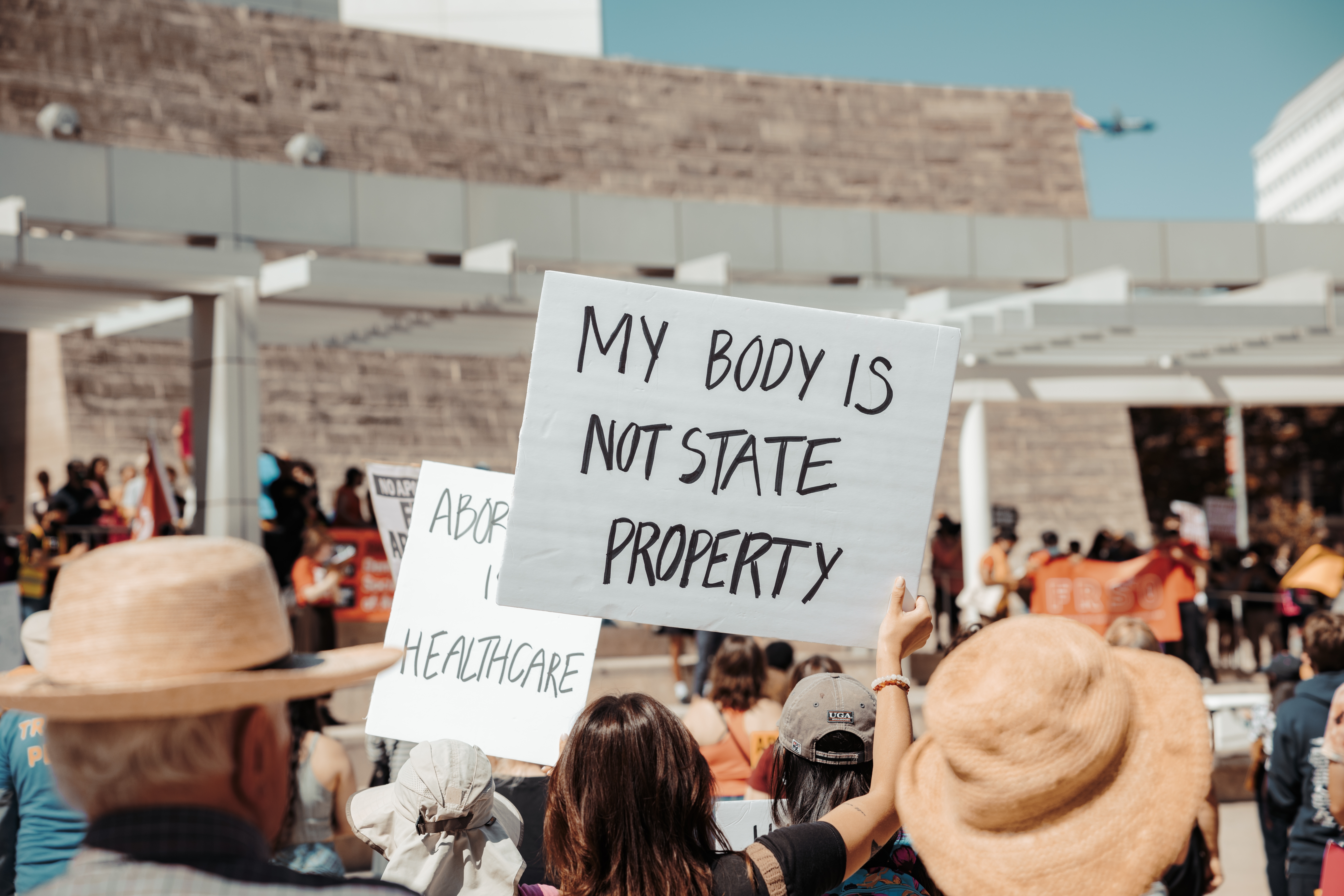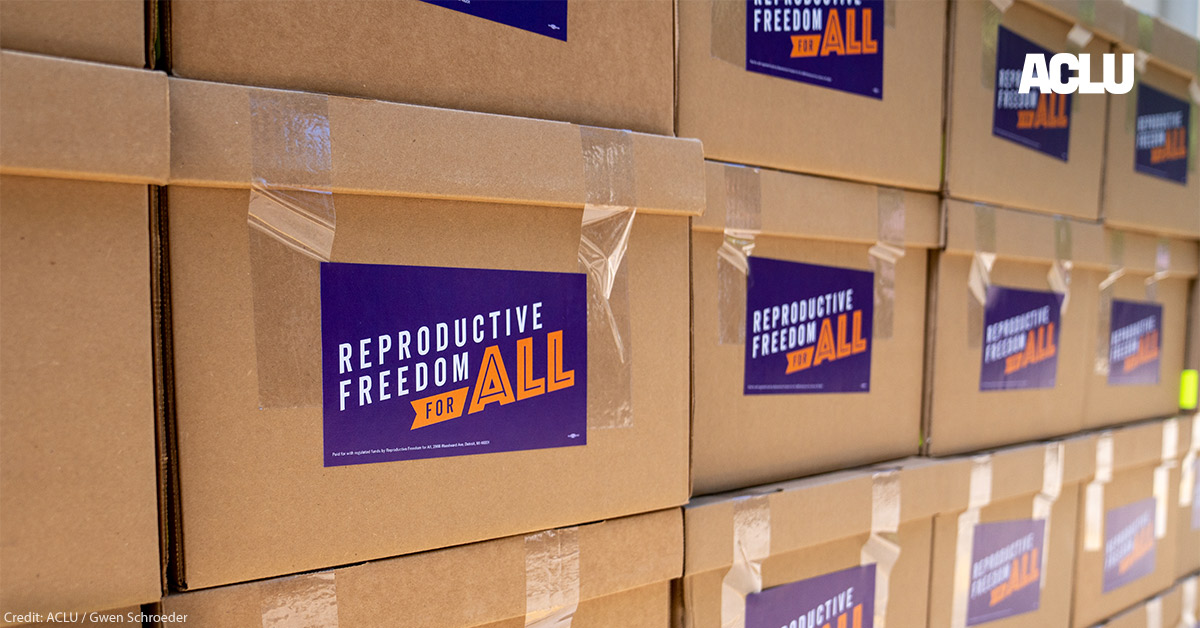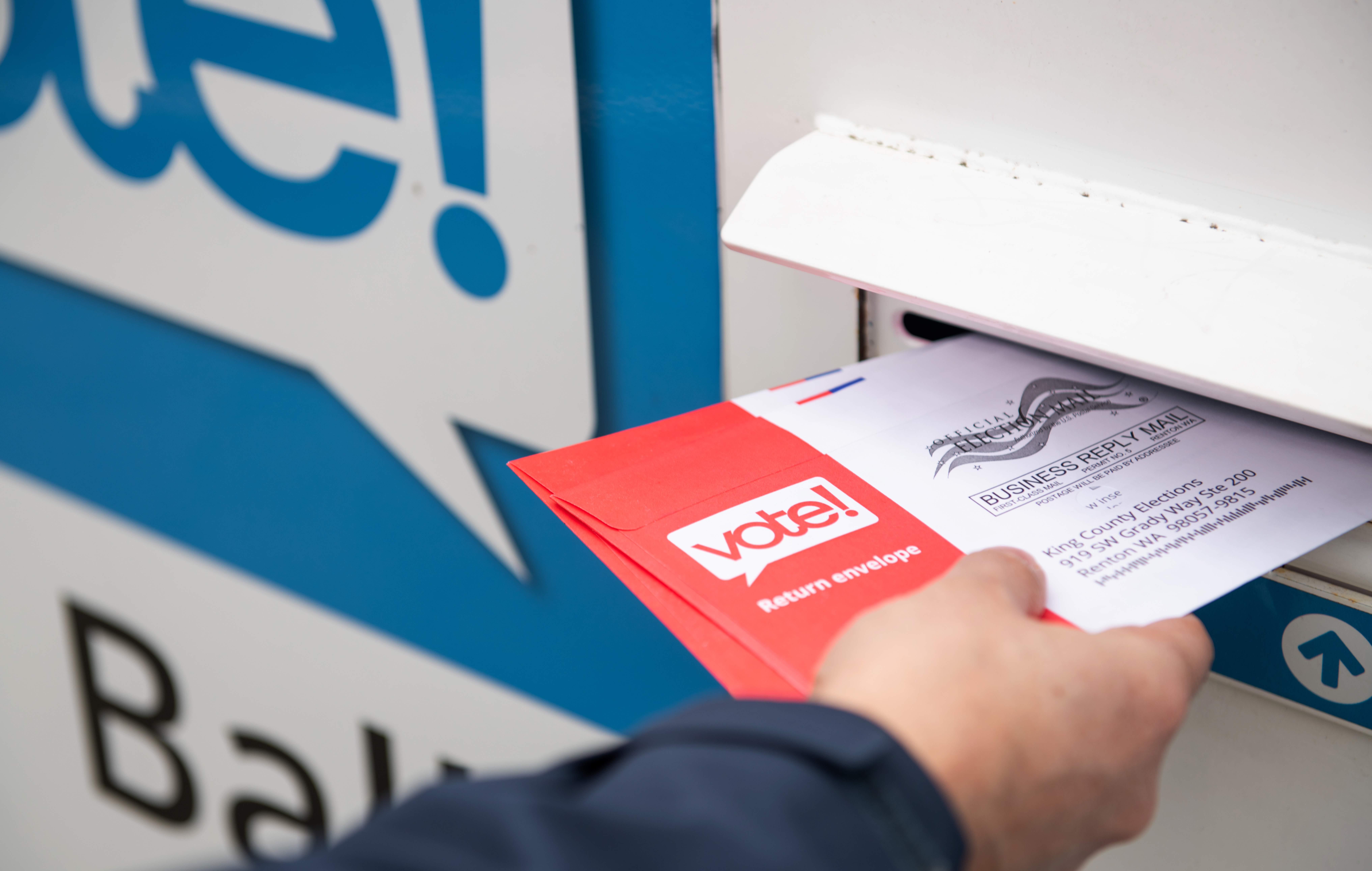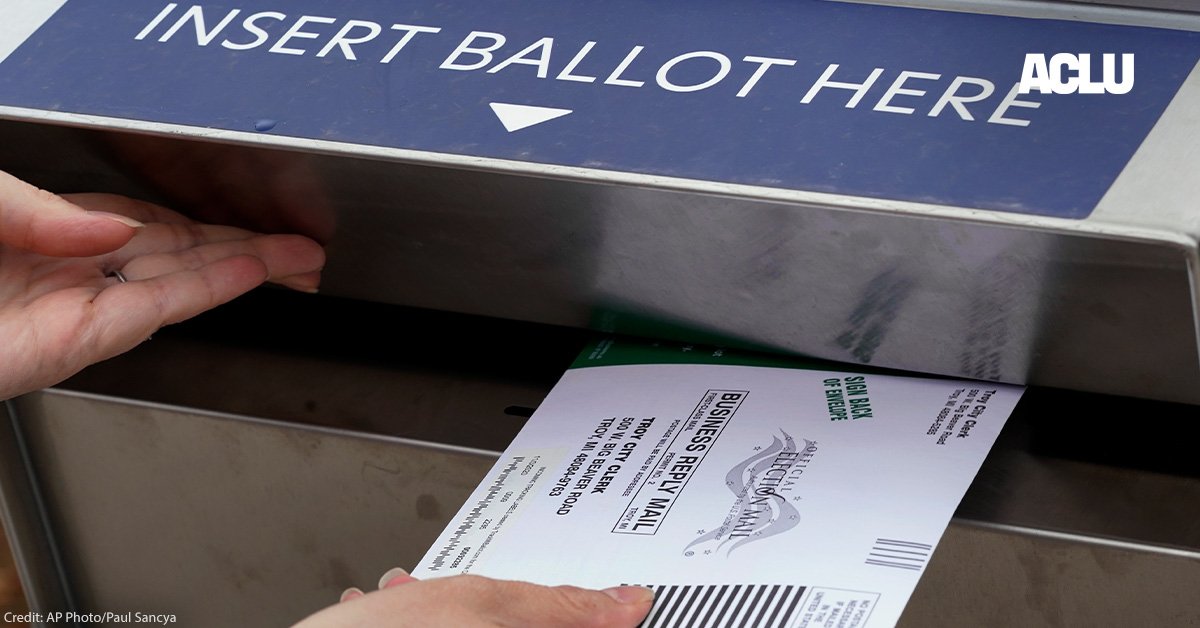By Brian Dimmick, ACLU Senior Staff Attorney, Disability Rights Program and Aaron Madrid Aksoz, ACLU Communications Strategy Associate
People with disabilities have long faced some of the greatest barriers to voting in our elections. From inaccessible polling places and a lack of working accessible voting machines to onerous restrictions on absentee voting, our right to the ballot has often been ignored or forgotten.
In 2020, over 11 percent of voters with disabilities reported that they faced some type of difficulty casting a ballot — more than any other group and despite expanded access to mail-in voting due to the pandemic. But instead of embracing the more accessible forms of voting that sparked record turnout, including among voters with disabilities, states have doubled down on new and more restrictive voter suppression laws.
In 2021 alone, more than 400 anti-voter measures were introduced by states across the country, many of which are most burdensome to people of color and voters with disabilities. These measures run the gamut from restricting access to absentee voting, eliminating Election Day registration, and making it more difficult to vote early in person, to criminalizing the act of assisting voters with disabilities to vote. We’re challenging some of the measures that have become law in court in Georgia and Texas, where egregious restrictions illegally burden the right to vote for people with disabilities.
Whether you choose to vote in person early or on Election Day, or vote absentee, you’ll have to navigate a complex web of state and local election rules and deadlines regarding voter registration, absentee ballots, and fixing or “curing” a ballot that was rejected, often due to missing or incorrect information.
This election season, we’re fighting back against voter suppression and urging all Americans to vote for their values and fight for their rights.
For voters with disabilities, we’re making sure you know your rights and can find resources about how to vote, including voting absentee and curing a ballot if it’s rejected.
Register to Vote or Check Your Registration
Vote.gov helps you quickly register to vote if you haven’t already. Register early, as some states require you to register to vote 30 days or more before an election.
If you’re already registered, double check that your registration, including current address, is up to date.
Request an Absentee Ballot
All U.S. states and Washington, D.C. permit people with an illness or disability to vote absentee, allowing you to mail in your ballot or drop it off at a drop box or polling location.
Similar to voter registration, each state has its own set of deadlines and rules for voting absentee. Check out the deadlines here on Vote.org. Some states require you to complete an application in order to receive an absentee ballot, and the deadline to apply may be as early as two weeks before the election. New voter suppression laws may require you to provide proof of ID to request an absentee ballot.
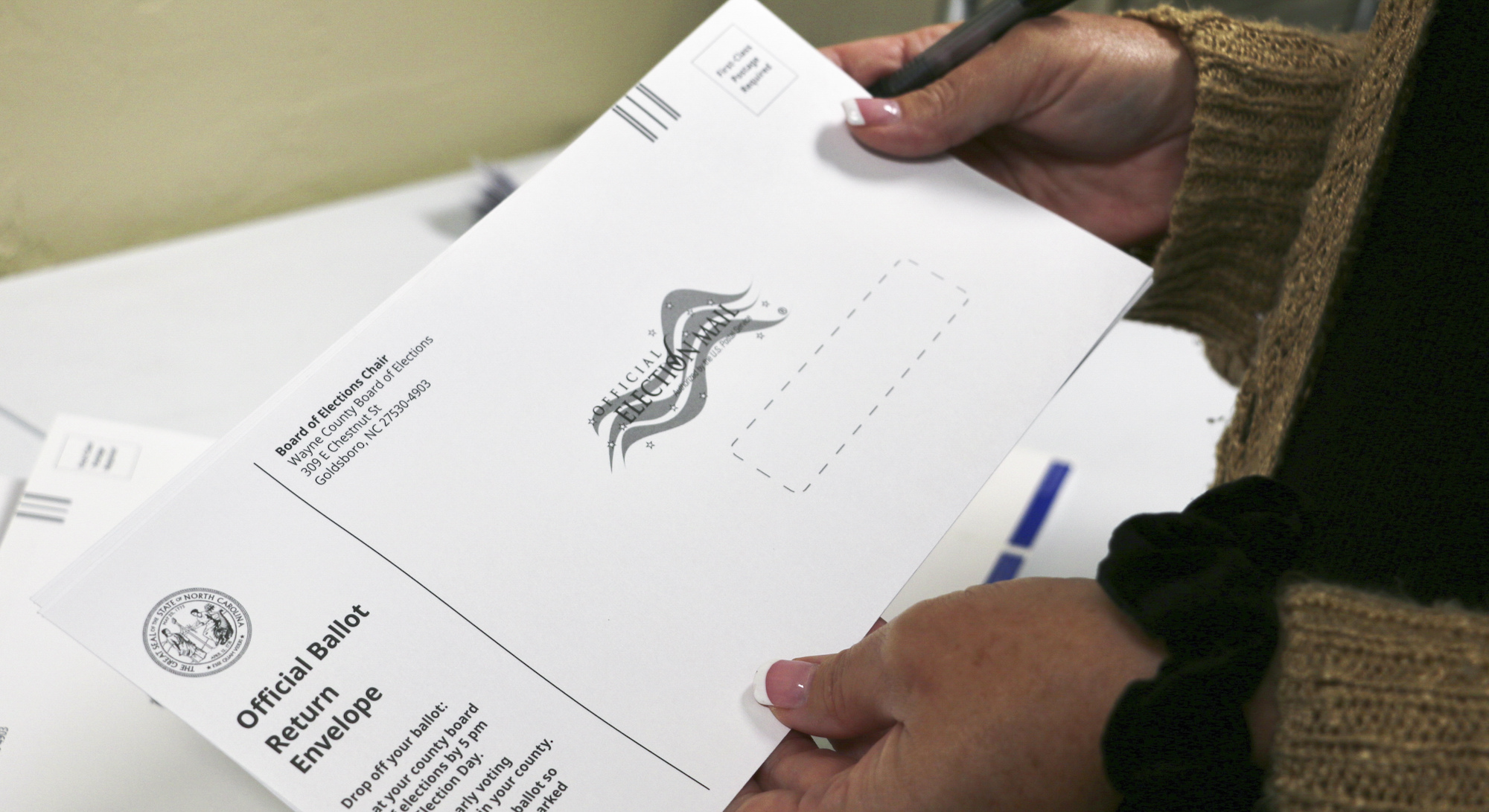
An absentee ballot from the Wayne County Board of Elections.
Hannah Schoenbaum/ AP Photo
You can find information about how to request an absentee ballot in your state using this tool from the National Association of Secretaries of State. Pick your state from the drop down menu and it will open a page or document with instructions on how to request an absentee ballot.
VoteAmerica, Vote.org, and the Election Protection Hotline have additional resources and information.
Cast Your Ballot, and Make Sure It’s Counted
If you plan to vote in person or return your absentee ballot in a drop box, locate your polling place or drop box. Many states do not allow you to vote in person at a location that is not designated as your assigned precinct. Check to see if your state requires an ID to vote in person.
If you plan to submit your ballot by mail, send it at least a week before the election to be sure it arrives by Election Day. Your absentee ballot will likely require you to sign the ballot and/or ballot envelope, and may require one or more witnesses to sign as well. Your ballot will be rejected if the signature is missing
Once your ballot is in, use your state’s ballot tracker to see if it’s been counted. Ballots may be rejected if there is a missing signature on the ballot envelope or a discrepancy in the signature matching process, or if your voter file is missing identifying information like your social security number or driver’s license number. One in eight mail-in ballots were rejected in the Texas primary earlier this year, so make sure your voter file is up to date with all the required information.
If your ballot is rejected, 24 states will allow you to correct your ballot in a process known as “curing.” These states are required to notify you via mail, phone, or email, that your ballot has been rejected and you need to correct it.
Most states will notify you within days of the election if your ballot has been rejected, and you will be given between 3 days and two weeks to prove your identity for your ballot to be counted.
Know Your Rights at the Polling Place
Federal law, including the Americans with Disabilities Act and Voting Rights Act, require election workers to:
- Make polling places fully accessible to voters with disabilities.
- Have at least one voting system at each polling place that allows people with disabilities to vote privately and independently.
- Allow voters with disabilities to receive in-person help at the polls (except from an agent of your employer or union).
- Make other reasonable accommodations if possible for them to do so.
Read more about your rights as a voter with a disability here.
Get Help if You Need It
If you need more information about voting, or want to report voter suppression or intimidation, contact the Election Protection Hotline at 866-OUR-VOTE (866-687-8683).
Date
Wednesday, October 26, 2022 - 3:15pmFeatured image
